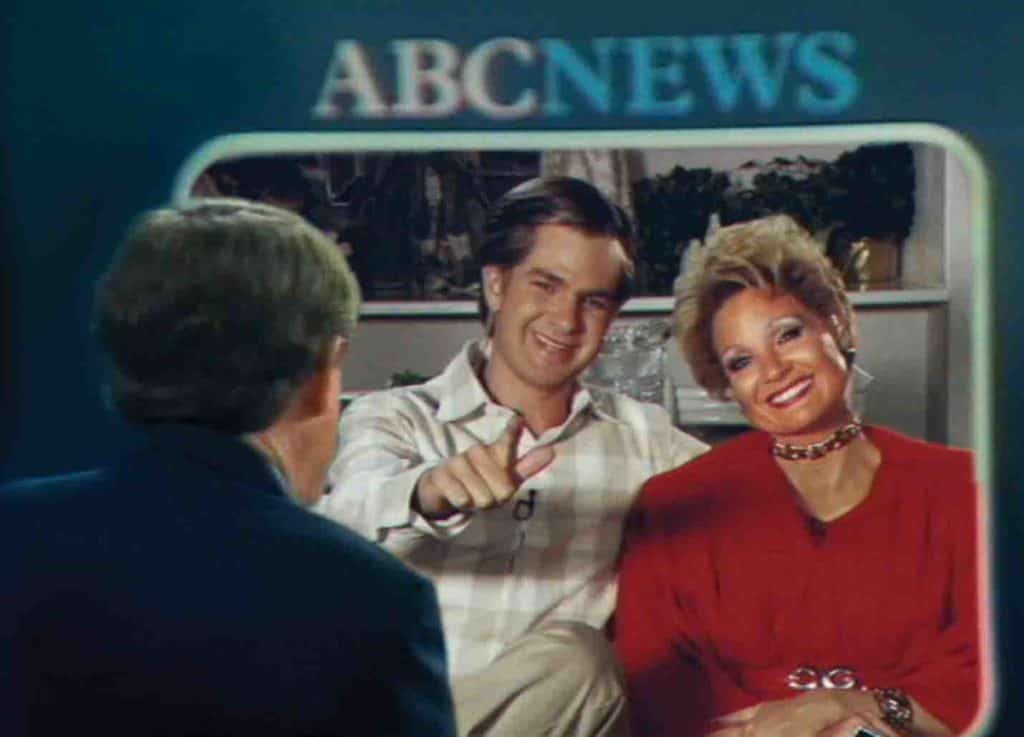Moviegoer: The Eyes of Tammy Faye

This movie needs a main character, not a martyr
By Diana Beechener
For decades, Tammy Faye and Jim Bakker (Jessica Chastain and Andrew Garfield) were the wholesome couple praising Jesus and asking their followers to send in money. The idea was simple: Sow seeds of prosperity by investing in their church and God would reward you with prosperity in your own life.
While the Bakkers were far from the only people preaching this, they might have been the most charming. Jim was an affable preacher who styled himself like an evangelical Mr. Rogers. Tammy Faye was his flamboyant wife who wore audacious outfits and lots of makeup (a rarity for “good Christian women” at the time). Tammy also got a name for herself as being one of the most empathetic figures in the Christian community. Her talk show and public appearances were filled with pleas to love everyone, including those who didn’t have the same values/lifestyles as her audience.
Later Jim Bakker was revealed to be fraudulently using church funds and the resulting media circus surrounding the Bakkers, their personal lives, and their illegal activities managed to bring down one of the most popular television channels in America and the couple behind it.
But was Jim the only person guilty of fraud?
The Eyes of Tammy Faye, much like its subject, is filled with contradictions. Though director Michael Showalter (The Lovebirds) wants to take swipes at the inherent hypocrisy of evangelicals that preach the prosperity gospel, he’s unwilling to hold Tammy accountable for any part she had in the shady dealings of the ministry. The result is a confused movie that can’t quite get a handle on what its point is.
Is Tammy an innocent—too naïve to understand what’s happening around her? Or is she a savvy girlboss who used her chutzpah to make herself and Jim household names?
She can’t be both, but Showalter seems committed to making Tammy a martyr. Her faith seems to stem from the fact that speaking in tongues in the church was the only way she could find validation and love during childhood. But this idea is quickly dropped, with the movie asserting that Tammy’s faith has always been genuine.
The film also ends with a tragic redemptive note, cutting out about 20 years of Tammy’s life, her second marriage, and continuing accusations of fraud that plagued her second marriage. Because Tammy can never take a false step—even her affair is framed as not her fault—the movie starts to feel less like a character study and more like propaganda.
Was Tammy Faye an empathetic woman who worked toward helping others? Probably. But the film makes her the second coming, which I’d imagine even Tammy would find to be a bit much.
The film has some merits, such as its sumptuous art direction. Be prepared to soak in the sequin, shag carpeting, and puffy sleeves. The costuming and makeup alone give you a better sense of Tammy than the script does.
The movie does have one truly great reason to see it: Chastain’s performance. Not only does Chastain nail the vocal and physical elements of Tammy Faye Bakker (with help from some amazing movie makeup), she brings a real sense of humanity to the role. A scene featuring Tammy interviewing a gay minister who contracted AIDS is both stunningly heartfelt and quietly powerful.
But Chastain is often fighting the movie. Every time she adds nuance to Tammy’s character, the script works to take it away. This is a biopic that could have used a few more flaws and a lot less gloss.
In theaters.
Fair Biopic * PG-13 * 126 mins.
